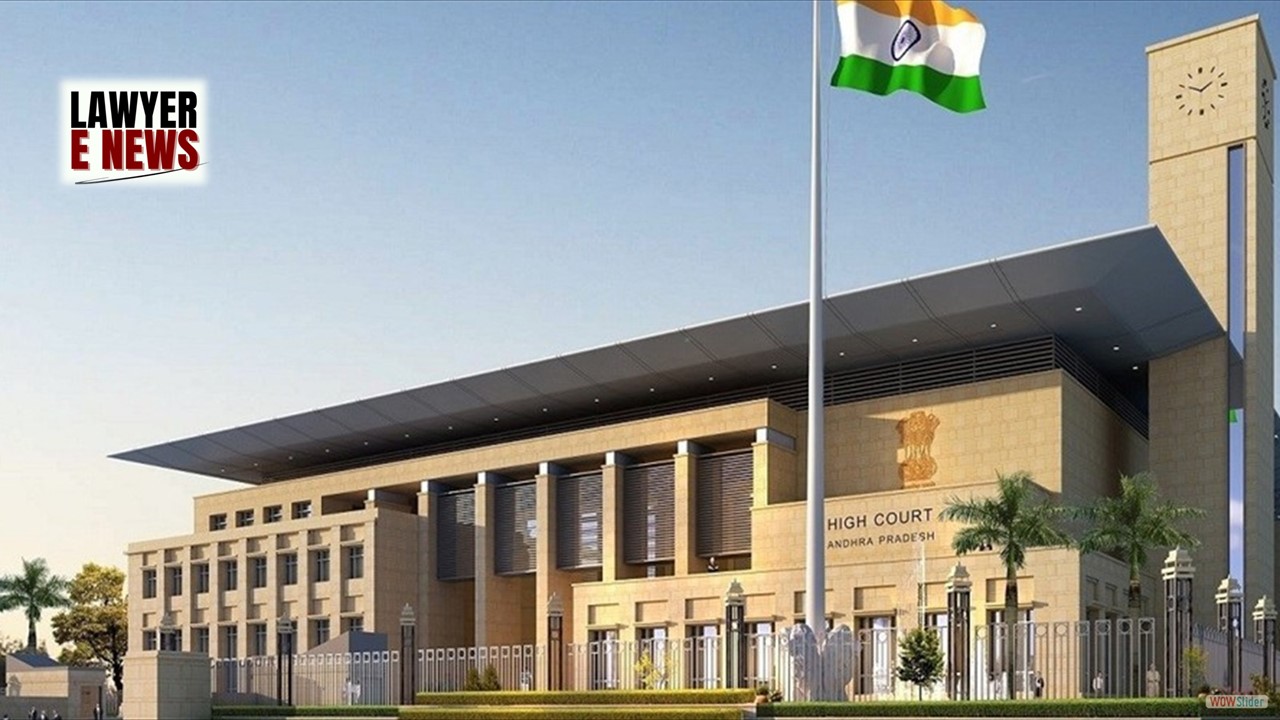-
by Admin
15 February 2026 5:35 AM



On November 22, 2024, the Andhra Pradesh High Court ruled in favor of Bharat Heavy Electricals Limited (BHEL) in a contentious dispute over the jurisdiction to impose stamp duty on an unregistered agreement. The Division Bench comprising Justice R. Raghunandan Rao and Justice N. Harinath quashed the show cause notice issued by the District Registrar, observing that the notice lacked jurisdiction under the Indian Stamp Act, 1899.
The dispute arose from an agreement between BHEL and the New and Renewable Energy Development Corporation of Andhra Pradesh (NREDCAP) for the installation of wind turbines, a project valued at Rs. 1500 crores. The Vigilance and Enforcement Department alleged that the agreement, being unregistered, had evaded stamp duty of Rs. 75 lakhs. Acting on this, the District Registrar issued a show cause notice under Section 41-A of the Stamp Act, directing BHEL to pay the deficit duty or present objections.
BHEL contested the notice through a writ petition, asserting that the provisions invoked did not apply to unregistered agreements. The Single Judge dismissed the petition, stating that the company should have responded to the notice before seeking judicial relief. Aggrieved, BHEL filed the current writ appeal.
The High Court focused on whether Section 41-A of the Indian Stamp Act could be applied to unregistered documents. Justice R. Raghunandan Rao observed:
“Section 41-A explicitly governs recovery of stamp duty on instruments already registered. Admittedly, the agreement in question is unregistered. Applying Section 41-A in this context is a clear overreach and renders the notice without jurisdiction.”
The Court highlighted that the statute’s language unequivocally confines the applicability of Section 41-A to registered instruments, emphasizing the need for strict adherence to statutory provisions.
The Bench criticized the involvement of the Vigilance and Enforcement Department in issuing directives to the Registrar, pointing out that such actions lacked statutory backing. It observed:
“The Vigilance and Enforcement Department’s role is not envisioned under the Stamp Act. Any authority vested with powers under the Act must act independently, based on the provisions therein.”
This statement underscored the principle that executive agencies cannot usurp powers not granted by legislation.
The Registrar also attempted to justify the notice under Section 33 of the Stamp Act, which allows authorities to impound improperly stamped documents produced before them. However, the Court clarified:
“Section 33 applies only when an instrument is voluntarily produced before an authority. Here, the agreement was not brought to the Registrar but seized by the Vigilance Department. Such an approach is unsustainable under the law.”
Further, the document in question was a copy, not an original, and as such, was beyond the scope of impounding provisions.
“The impugned notice is without jurisdiction and contrary to the statutory framework. Power to impound and recover duty must be exercised strictly within the confines of the law.”
The judgment reaffirmed that jurisdictional limits are sacrosanct and administrative agencies must operate strictly within their statutory mandates.
This ruling is significant for its reiteration of jurisdictional discipline in tax and revenue matters. By emphasizing the limits of statutory provisions and curbing executive overreach, the High Court reinforced procedural safeguards for taxpayers and ensured adherence to legislative intent.
Date of Decision: November 22, 2024
